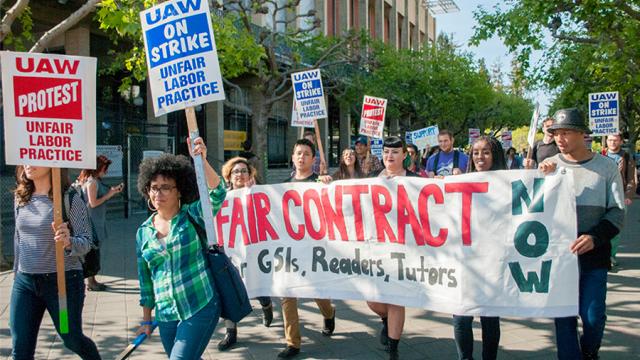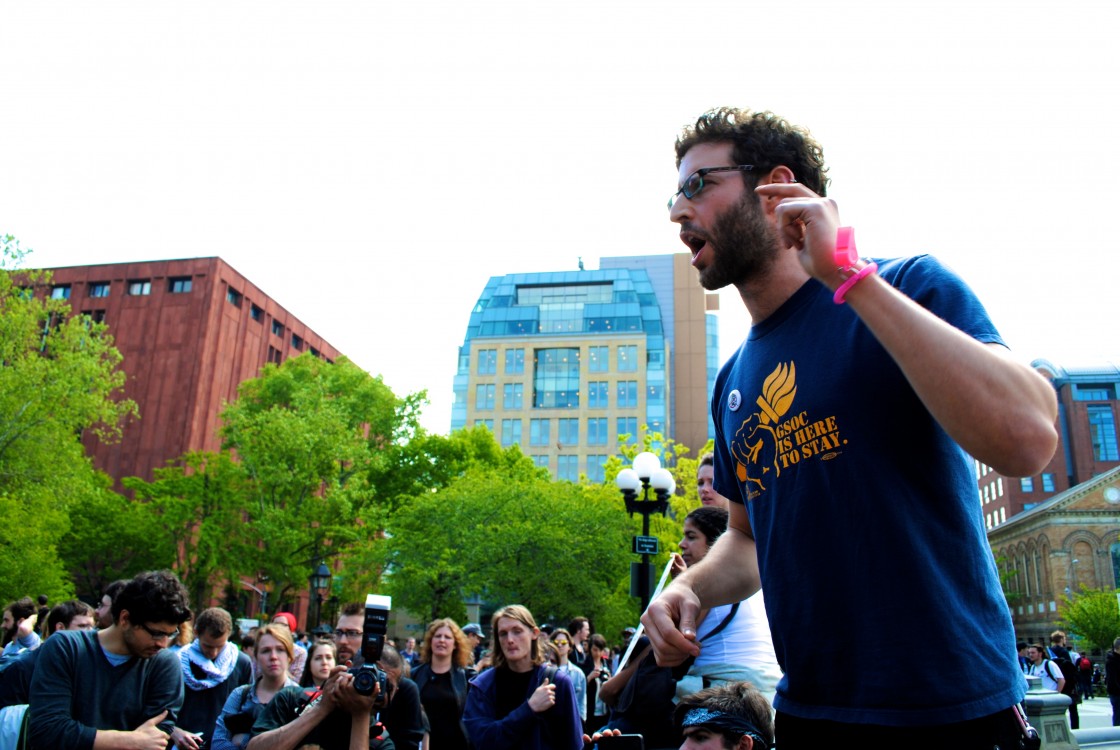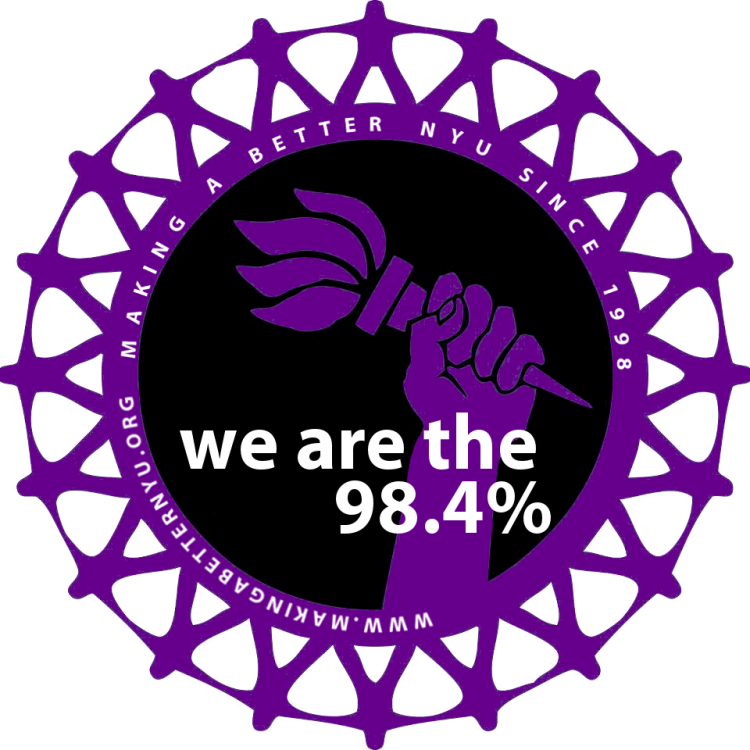
Last December, NYU graduate student employees won recognition for our union, GSOC-UAW, from the university administration. With an overwhelming 98.4% of votes cast in favor of the union, NYU became — for the second time — the first private university in the country to recognize the rights of its graduate student employees to collective representation.
After more than fifteen years of organizing, NYU’s graduate student workers had won a major victory, and the voluntary recognition of the union by the administration had the potential to set a new kind of precedent for other graduate student organizing campaigns around the country. But recognition was the start of a new round of struggle: one around what kind of a contract we could win, and what kind of union GSOC would be.
In July, a group of bargaining committee members — graduate students elected by their peers to represent us in our negotiations with the NYU administration — released a statement highlighting the “concessionary strategy, demobilization of our membership, and opacity of the bargaining process” on the part of UAW staff that they had witnessed over the course of the previous semester.
That statement, which charged union leadership with failing to adequately communicate with the membership and with the marginalization of activist members who sought to create an campaign to support the bargaining process, called for a new strategy to win a strong contract: one based on transparency, accountability, and building democratic structures within our unit.
In so doing, the dissenting bargaining committee members, and the nearly 120 members who signed a statement supporting their demands, joined a growing mobilization of graduate student workers around the country who are building member-led unions that can win real gains in their working conditions and forge strong links with other movements and unions fighting for social justice. We are helping to create a movement working from within union structures to push for internal democratization in the UAW as the only way to rebuild the strength of our union and the labor movement more broadly.
At the forefront of this movement is Academic Workers for a Democratic Union, a reform caucus that has been organizing in the University of California system for the past four years. After sweeping the elections for Local 2865 executive board positions statewide, AWDU leaders then radically reoriented the bargaining process and staged a contract campaign that sought to prove that there didn’t need to be a trade-off between so-called “bread and butter issues” — compensation, healthcare costs, teaching conditions — and social justice issues, such as support for undocumented students, working mothers, and trans* and gender non-conforming people.
Their opponents in the executive board elections argued that participation in the union by rank-and-file members was decreasing, and that AWDU actions were divisive and made the union “look weak” in the eyes of the management. But after AWDU overwhelmingly won the elections, they went on to win a contract, through their first open bargaining process, that includes wage increases of seventeen percent over four years, increased parental leave, higher childcare subsidies, and a provision on union input regarding class size. AWDU members say the deal proves that a strategy that prioritizes rank-and-file mobilization can not only win a strong contract, but can do so while forging connections and building solidarity across campus and across movements.
Similarly, at the University of Massachusetts-Amherst, representatives of the radical slate Workers for Respect, Action, and Democracy have assumed leadership not only of their unit, but also won leadership positions within their amalgamated local, which also includes healthcare and childcare workers. Building solidarity across shops is vital in Local 2332, where graduate workers on nine-month contracts are, in fact, more highly paid than some of the other full-time workers in the unit — and yet, according to union activists, they were not seen as true “workers” by former leadership (a curious stance for an organization increasingly relying on dues paid by academic workers).
And graduate workers oriented toward social-justice unionism can make a real political difference beyond the university: it was the Teaching Assistants Association, an AFT affiliate at the University of Wisconsin-Madison, that organized the first protests against Governor Scott Walker’s 2011 budget bill to strip collective bargaining rights from public sector workers in that state, sparking the largest protest in Wisconsin history.
The setback to collective bargaining rights in that state is a huge blow to the labor movement in Wisconsin and around the country, but it should be remembered it was radical graduate students who led the fight back against it.
Of course, back at NYU, the recognition of GSOC was won in the context of crucial cross-issue organizing, when the administration was feeling pressure from faculty, student, and community groups around its financial priorities. The changes occurring in the academic workforce mirror those occurring in other sectors: Increasing casualization and reliance on low-wage contract work have eroded job security at the university, just as in the auto plants.
3 WAYS TO SHOW YOUR SUPPORT
- Log in to post comments













